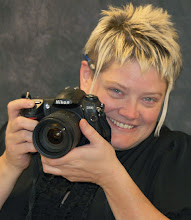

As the new Scene is prepared to be delivered to SUNY Geneseo's alumni, friends and supporters, we have more good news from the service-learning program and El Sauce economic-development initiatives to share with our 52,000 readers.
Stay tuned to the blog to read more about El Sauce and how Geneseo efforts are having an impact.
• The School of Business, in concert with The Friends Project, a grassroots group based in Rochester, N.Y., arranged for an expert basket-maker to spend a month living with the women in Cerro Colorado. Right now, she is teaching them how to craft more uniform baskets, helping them hone their skills and helping them create more intricate thread patterns and basket designs with the pine needles that fall near their mountain homes.
It will help the women sell their art for a higher price and compete in U.S. and larger markets.
• School of Business students will explore U.S. markets and importing the Cerro Colorado baskets this fall. The women are busy filling a $1,000 order from Geneseo to get started.
• The restaurant and welcome shelter at the base of the mirador, or "lookout," in Ocotal is nearly complete.
By summer's end, visitors to El Sauce will enjoy home cooking by Ocotal farmers and their families and have a central gathering place for tours.
El Sauce service-learning volunteer Yacarely Mareina-Dávila won a $10,000 grant for the tourism business proposal to buy supplies such as lumber. Nearly $2,000 in private donations were also raised, by friends and family who support the project.
•Allison Kornblatt '10 landed in El Sauce last weekend, June 7, to launch her award-winning dental hygiene program with children in El Sauce — with help from the Nicaraguan division of Colgate.
She has significantly expanded the project's scope with the company's teamwork.
Allison and Geneseo volunteers are visiting schools with Colgate reps, who will share proper brushing technique and a hygiene regimen with teachers. Colgate will also supply toothpaste and toothbrushes, so the kids can brush at school in morning and afternoon. Teachers will continue the education-prevention program.
Allison was able to use her $1,000 grant from New York Campus Compact to buy inexpensive ceramic water filters. This way, students have access to potable water so they can brush.
Originally, Allison was going to provide brushes and paste but families would need to brush at home — oftentimes they don't have access to filtered water.





